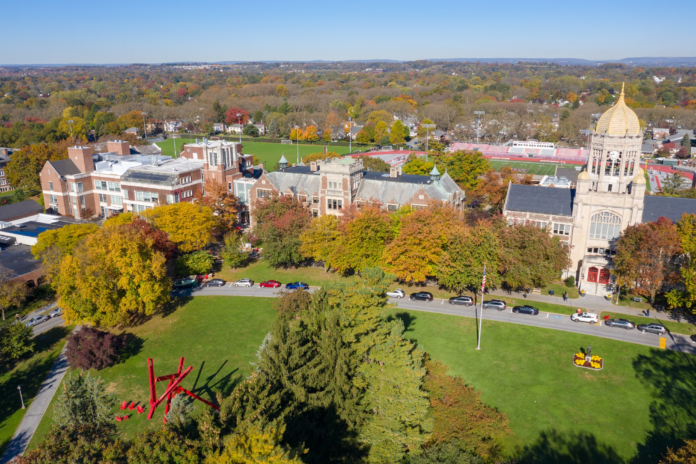Sept. 18 marked the second installment of #mulesathome, a space for open dialogue hosted by Dean Gulati and the Student Government Association (SGA). These virtual events on Zoom provide community and foster conversation for students studying remotely. They can hop on and take part in these discussions about how Muhlenberg is handling certain issues on campus and beyond.
Gulati, Jordan Soffer, president of SGA, and Robin Riley-Casey, director of the Office of Multicultural Life (OML), headlined the conversation with a particular focus on equity and inclusion. A handful of students and some staff members from different departments around campus were present.
Gulati highlighted that equity and inclusion is something the campus community is continually working to improve. This can build bridges across different areas of campus, promoting better understanding and acceptance.
Gulati highlighted that equity and inclusion is something the campus community is continually working to improve.
“[This is] a major priority for our strategic plan,” emphasized Dean Gulati.
Riley-Casey went on to discuss the importance of equity and inclusion, especially in the current climate of the world. As director of MCL, her role is to advocate for communities who suffer from a history of disenfranchisement and have been denied representation.
Relating to current events, people of color (POC) have been disproportionately affected by COVID-19. Lower socioeconomic communities also have been impacted harder. For some, they do not have the same risk and fear of coronavirus due to certain privileges, such as being able to work remotely. Robin stated how being a woman of color who has the privilege of working remotely significantly changes her risk level.
For some, they do not have the same risk and fear of coronavirus due to certain privileges, such as being able to work remotely.
Some LGBT+ students who are at home may need extra support, as they may be safe and feel more themselves on campus. Asian international students and Asian-American students may have faced harassment due to the false claim that coronavirus is the “Chinese virus.”
Groups on campus have been aware of these marginalized communities and have been reaching out. The student body in general have been great with recognizing the disenfranchisement and working towards building and maintaining community on a global scale.
“[It has been] exciting work,” concluded Riley-Casey on these updates.
These are not the only marginalized communities at Muhlenberg. Conservative students sometimes feel they do not have a voice. With a large Jewish population, some within that community feel marginalized as well. Palistinian students also feel as if their voices are not heard. Disability is also a social justice issue.
“I had a blindspot around disability,” admitted Riley-Casey, when she discussed why she was originally unsure about including a disability advocacy group that wanted to be within OML.
“[However, we must have] a constant desire to open up what limits we have put on our identities,” claimed Riley-Casey. “[We need to] reshift mindsets and open up ourselves in order to build community.”






















